01). Free - Heartbreaker (3'43)

From "Heartbreaker" in 1973, their seventh and final album. UK blues/rock outfit Free were formed in London in May of 1968 by guitarist Paul Kossoff and drummer Simon Kirke, both of whom had featured in an outfit called Black Cat Bones. They recruited ex-John Mayall's Bluesbreakers bass player Andy Fraser and vocalist Paul Rodgers, previously with an outfit called Brown Sugar. When Free finally folded in July 1973, having released seven albums, Rodgers and Kirke went on to form Bad Company (Rodgers was also later in The Firm and The Law. He's also released a number of solo albums, and he's now fronting Queen). Andy Fraser formed The Sharks. Paul Kossoff formed Back Street Crawler, which he named after a solo album he'd released in 1973. He appeared on the debut album "The Band Plays On" in 1975, but passed away on 19 March 1976, the victim of substance abuse. Former If guitarist Geoff Whitehorn was his replacement. A second album, "Second Street", was released in 1976 before the band changed their name to Crawler. Kossoff's drug problems and subsequent unreliability led to future Stray Dog and Fortress guitarist Snuffy Walden being drafted into the band and Walden appeared on a few tracks on the featured album. During their short career, Free released some fantastic albums, namely "Tons Of Sobs" (1968), ''Fire and Water" (1970), "Free At Last" (1972) and "Heartbreaker".
02). Mott The Hoople - Thunderbuck Ram (4'49)
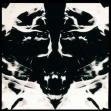
Quite a controversial band, this UK outfit evolved out of a mid-to-late 60's Hereford-based outfit called The Doc Thomas Group, which featured Overend Watts on bass, Dale Griffin on drums, Mick Ralphs on guitar and keyboard player Verden Allen. Vocalist Stan Tippins joined, but he was soon replaced by vocalist/pianist Ian Hunter, who came from At Last The 1958 Rock 'n Roll Show. The band changed their name to Mott The Hoople (which they took from a novel by Willard Manus), signed to Island Records, and released their self-titled album in 1969. The featured track was taken from "Mad Shadows", their second album, released in 1970. During the next few years, the band's fortunes started taking a bit of a dive, but then they were bailed out when David Bowie took an interest in the band. He got them signed to CBS Records, and he wrote their biggest hit, "All The Young Dudes", in 1972. The band folded, though, in the late seventies, having shortened their name to Mott. Mick Ralphs joined Simon Kirke, Paul Rodgers and Boz Burrell in Bad Company. He was replaced by Luther Grosvenor, ex-Spooky Tooth, who subsequently became known as Ariel Bender. Ian Hunter recorded as a soloist and also worked with guitarist Mick Ronson. He was recently quite deservedly awarded the "Classic Songwriter" award by the UK's prestigious Classic Rock magazine. Dale "Buffin" Griffin and Overend Watts went on to from British Lions with later Mott members Ray Majors and Morgan Fisher (Nova Solis) in 1977. Other Mott the Hoople albums worthwhile checking out are the self titled debut (1969), "Brain Capers"(1971), "Mott"(1973) and "Live"(1974). The UK Angel Air record label has since issued many previously unreleased live albums by this memorable band, plus a few solo albums by the various members.
03). Sharks - Sophistication (4'49)
A very good but sadly short-lived UK outfit who were formed by Free bassist Andy Fraser and guitarist Chris Spedding, who'd worked with the likes of Pete Brown's Battered Ornaments, The Jack Bruce Band, Nucleus and others. A vocalist with the unusual name of Snips also joined the band, together with drummer Marty Simon. They released their debut album, ''First Water", in 1973, and then the featured album, ''Jab It In Your Eye", in 1974, with the addition of keyboard player Nick Judd and Busta Cherry Jones replacing Fraser on the featured album. (Fraser became disillusioned with the band after the debut album failed to chart in the UK). The band then split in November of that year. Andy Fraser went on to form The Andy Fraser band in 1975 with drummer Mike Kellie (Spooky Tooth), guitarist Henry McCullough (Grease Band) and vocalist Frankie Miller. Chris Spedding continued as a soloist and worked with many other musicians including appearing on 'After The Fact' by Rodriguez. (Mr) Snips, as he was also known, recorded a couple of solo albums and he went on to work with Ginger Baker and also with The Baker Gurvitz Army. A largely unheralded third Sharks album, called "Like a Black Van Parked on a Dark Curve...", with Spedding, Pete Thomas on drums, Steve Parsons on vocals & guitar, Simon Etchell and Jackie Badger on bass, was released in 1995.
04). Chicago - Introduction (7'09)
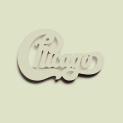
From "Live at Carnegie Hall" in 1971. The original album came out as a four lp set, complete with posters and an extensive booklet. It was originally released on CD about ten years ago, as a three CD set, but without all the bells and whistles. Rhino Records, in keeping with their recent trend of re-releasing much of the Chicago back catalogue in a re-mastered and re-packaged format, have released this stunning album exactly like the original album, complete with miniature posters and booklet. There's also a bonus disc of extra tracks. This incredible "box set" captures the classic Chicago line-up of Terry Kath (guitar/vocals), Pete Cetera (bass/vocals), Robert Lamm (keyboards/vocals), Danny Seraphine (drums), Walt Parazaider (woodwinds), Lee Loughnane (trumpet) and Jimmy Pankow (trombone) at their best. Chicago are still around today and are still sounding great - check out their latest dvd with Earth, Wind & Fire.
05). Blood, Sweat & Tears - Lucretia MacEvil (7'01)
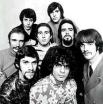
From "Live & Improved", a fantastic double album recorded during a US and Canadian tour in the mid 70's, featuring David Clayton-Thomas on vocals, Bobby Colomby on drums, Don Alias on percussion, Mike Stern, Steve Khan and George Wadenius on guitar (Stern at The Monterey Jazz Festival, Khan at The Schaeffer Music Festival and Wadenius at The National Arts Centre), Dave Bargeron on trombone & tuba, Bill Tillman on sax & flute, Arthur Klatka on trumpet, Joe Giorgianni on trumpet and Ron McClure on bass. It was around this time that B,S&T were starting to move into jazz territory. Then-leader Bobby Colomby felt that the band had much to offer in the jazz field, and this would become quite apparent on later albums such as "Mirror Image" and '' New City", although there was also a decidedly funky side to the band as well. Clayton -Thomas left to embark on a solo career and he was later replaced by Jerry Fischer, although he would return to lead the band into the 80's.
06). Ides of March - Vehicle (6'37)
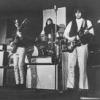
Yet more requests to hear something from this fantastic double live album, recorded when the band reformed in the late 90's. Featuring vocalist Jim Peterik, who went on to feature with Chase, Mariah and Survivor. See previous write-ups on this great band and on the album, which was released in 2002.
07). Salamander - Prelude (6'16)

From "The Ten Commandments", in 1971, a conceptual religious album from this very good US quartet, featuring Dave Titley on guitar and vocals, Alister Benson on organ and vocals, Dave Chriss on bass and John Cook on drums. The album, which features stunning orchestration, is quite rare. It was released on CD through Laser's Edge in 1991.
08). Eden Rose - Obsession (4'24)
A French outfit who recorded just the one instrumental album "On The Way To Eden", in 1969. Highly regarded as one of the best progressive rock outfits to emerge from France in the 70's, the band was comprised of Jean Pierre Alarcen on guitars, Michel Julien on drums, Henry Garella on keyboards and bass player Christian Clairefond. They were compared to bands such as Procol Harum and The Moody Blues, with a touch of Bach thrown in for good measure. The band then evolved into Sandrose, one of France's best known bands. Eden Rose's album is one of the best albums to come out of France, and it's highly recommended. It's also French label Musea's second best ever seller, having moved in excess of 10,000 copies worldwide.
09). Saturnalia - Winchester Town (7'20)

From "Magical Love", in 1969, their sole album. Saturnalia were a late 60's UK psych/prog outfit, formed by bass player Richard Houghton, drummer Tom Crompton, vocalist Aletta, guitarist Rod Roach and vocalist Adrian Hawkins, with the latter two having come from UK hard rockers, Horse. The album, originally released on Matrix Records, is quite rare and fetches a pricey sum on the collectors market. (Drum solo aside, the similarities between the featured track and Blind Faith's "Do What You Like" are quite astounding!)
10). Abiogenesi - Abiogenesi 3
This Italian progressive rock outfit released their eponymous album about ten years ago (actual release date not shown on the album), on the Italian Black Widow Record label. The band featured Sandro Immacolato on drums, Roberto Piccolo on bass, Patrick Menegaldo on keyboards (replaced by Marco Cimino) and Toni D'Urso on guitar. The track was taken off their recently released new album, "Le Notti Di Salem", which features ex-Pesky Gee! and Black Widow (the legendary UK band) vocalist, Clive Jones, who appears with keyboard player & guitarist Kevin Brooks. The tracks on this album are great and are a lot heavier than those on their earlier material.
11). High Wheel - Into Voyage
From "There", their third album, in 1996. They're a very good German progressive band who were formed in the early 90's by Erich Kogler (bass & vocals), Andreas Lobinger (keyboards & vocals), Uli Jenne (drums & vocals) and Wofgang Hierl (guitars, flute & vocals). They released their debut album, "1910", in 1993. Blessed with stunning musicianship and songwriting, it's a mystery as to why this band aren't well known internationally. Subsequent albums such as "Remember The Colours"(1994) and ''Back From The Void" (2001) are all highly recommended. Visit www.highwheel.de
12). Ten Jinn - Those Who Must Be Kept
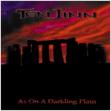
From "As On a Darkling Plain" in 1999. Formed in the US in mid to late 90's, this competent prog band was comprised of Ken and Ivor Francis on drums and guitars respectively, Brad Weisse on bass and John Paul Strauss on vocals. Their (known) debut album, "Wildman'', was released on the Emerald City Record label in 1997. Very obviously influenced by bands such as Camel, there's some stunning guitar work on the featured album, which now featured Mark Wickliffe on drums, Matt Overholser on bass, Bob Niemeyer on keyboards and Michael Matier on guitars, with Strauss the only original remaining member.
13). Alan Parsons Project - Snake Eyes

From "Turn Of a Friendly Card", in 1980, another excellent conceptual album from Alan Parsons and Eric Woolfson. Featuring guitarist Ian Bairnson, drummer Stuart Elliot and bass player David Paton, with both Woolfson and Parsons on keyboards, vocalists Elmer Gantry (of Velvet Opera and Stretch fame), Lenny Zakatek and Chris Rainbow (Camel and others). Alan Parsons, well known for his work as an engineer and producer (The Beatles, Pink Floyd, Al Stewart, Cockney Rebel, Ambrosia, just to name a few), formed the Alan Parsons Project with keyboard player/vocalist, songwriter and producer Eric Woolfson in the mid 70's. Their debut album, "Tales of Mystery and Imagination"(1975), in which they adapted the work of mystery/horror writer Edgar Allan Poe, set the stage for future conceptual releases that would examine specific themes, such as science fiction ("I Robot) (1977), mysticism ("Pyramid") and, in the case of the featured album, gambling and greed. Utilizing the services of some of the most respected musicians and vocalists in the world, namely Colin Blunstone, Duncan Mackay, Gary Brooker, Arthur Brown and others, the Project released an number of fantastic albums before Parsons and Woolfson parted ways. Parsons continued to record under his own name. It has to be said that he's most recent album, "A Valid Path", is quite disappointing.
12). Chris de Burgh - Crusader (7'11)
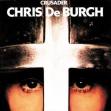
Born Christopher John Davidson in Argentina on 15 October 1948, vocalist/guitarist Chris de Burgh was first discovered by songwriters Doug Flett and Guy Fletcher. He signed to A & M Records in 1974 and set his sights on the soft end of the rock market. His debut album, "Far Beyond These Castle Walls", was released in 1975. The album was fairly well received, but it was his follow-up album, the controversial "Spanish Train and Other Stories",(also 1975) which was, embarrassingly, banned in South Africa, that charted well. "At The End Of a Perfect Day" followed in 1977, and then on to the featured album, "Crusader", arguably one of his best, which came out in 1979. Featured musicians on the album were Alan Parsons Project members Stuart Elliott,(drums), Ian Bairnson (guitars), Andrew Powell (piano, and choir/orchestra conducting), and David Paton (bass), together with Mike Moran on keyboards. Chris de Burgh is a songwriter of note and a fantastic entertainer to boot - "Crusader" certainly was one of the better albums of the late 70's. Further albums saw him climb the charts at an amazing rate, with his "Lady In Red", from "Into The Light", reaching number two on the UK charts in 1986. He recorded and performed well into the 90's and is still around today.
13). Popa Chubby - The Beat Goes On (3'43)

US Blues/rock guitarist/vocalist Popa Chubby (aka Ted Horowitz) first came to prominence when he walked off with The New Artist Of The Year prize at The Long Beach Blues Festival in California in the early 80's. An honest, no-holds-barred, hard working blues guitarist, he drew his influences from the likes of blues masters such as Freddie King. He put his first band together in the late 80's they spent the next four years building up a following. His debut album, "Beauty And The Beast", with Mike Leslie on bass, Tom Major on drums, Rick Monica on percussion, George Laks on keyboards and Mitch Margold, was released on Sony Music's Okeh Blues label in 1995. An album of earlier material recorded in the early 90's, called "The First Cuts", was released in 1996. Other great albums include "The Hungry Years" (2003),"One Million Broken Guitars"(1998), "Gas Money"(1996), ''How'd a White Boy Get The Blues"(2000), "Brooklyn Basement Blues" (1998), the live "Hit The High Hard One"(1996), "The Good,The Bad and The Chubby"(2002) and a great album called "New York City Blues"(1999), which featured the chubby one with Big Ed Sullivan, James "T'' Tillson, Arthur Nielson, Matt Smith and Bobby Carson. The featured track, originally written by Sonny Bono, was taken from "Flashed Back" in 2001, an album of famous blues and rock covers, such as "Low Rider"(War), "Don't Let Me Be Misunderstood" (Eric Burdon & The Animals), "Hey Joe" by Jimi Hendrix and others.
14). Yardbirds - Train Kept a Rollin'

From their recent reformation album, ''Birdland", in 2003. The Yardbirds are probably one of the most important bands to have emerged from the UK, having launched the careers of guitar legends such as Jeff Beck, Jimmy Page and Eric Clapton, all of whom are amongst the most admired and respected musicians in the world. Evolving out of The Metropolitan Blues Quartet in 1963, they replaced the Rolling Stones as the resident band at The Crawdaddy Club in Richmond, and later won a Friday night residency at London's famous Marquee Club. The initial line-up included guitarists Chris Dreja and Tony Topham (who was replaced by Eric Clapton before they won a recording contract with Columbia), drummer Jim McCarty, vocalist/harp player Keith Relf and bass player Paul Samwell-Smith. They recorded their debut album, "Five Live Yardbirds" at the Marquee in 1964. By March 1965, Clapton had become disillusioned with the direction the band was following and he left to join John Mayall's Bluesbreakers.(He later formed Cream, Blind Faith, Derek and The Dominoes and became a very successful soloist). He was replaced by Jeff Beck. Their first self-titled studio album, released in 1966, found the band moving into a more psych direction. Paul Samwell-Smith left the band in 1966 (to do production work with the likes of Cat Stevens), and he was replaced by Jimmy Page, with Chris Dreja moving on to bass.The band was now very popular in the US as well as in their home country and they'd been scoring with numerous hits, many of them reaching number two and three on the charts. Their US popularity was augmented by their album release with Sonny Boy Williamson in 1965. Beck left the band (in 1966 - he later embarked on a successful solo career). The Yardbirds then folded towards the end of the 60's. Jimmy Page later formed The New Yardbirds which evolved into Led Zeppelin. Jim McCarthy and Keith Relf formed Together, which evolved into the original Renaissance. (Relf also formed Armageddon, but he was tragically electrocuted by a faulty amplifier while playing his guitar at his home on March 14th, 1976). Chris Dreja, Jim McCarty and Paul Samwell-Smith formed the underrated Box Of Frogs in 1984 and released two great albums.
The latest album, released on Steve Vai's Favored Nations Record label, features original members guitarist Chris Dreja and drummer Jim McCarty, together with guests that include Joe Satriani, Jeff "Skunk" Baxter, Jeff Beck, Slash, Brian May, Steve Lukather and others.
15). Gary Moore - Ball and Chain
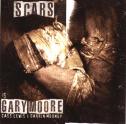
From his brilliant ''Scars" album in 2002, featuring bassist Cass Lewis (Skunk 'n Nancy) and Darren Mooney on drums. Gary Moore is undoubtedly one of the best and most respected guitarists in the world. Born on April 4th 1952 in Belfast, Northern Ireland, he first rose to prominence in Skid Row when he was 16 years old, initially together with bassist/vocalist Phil Lynott, who later went on to form Thin Lizzy. Gary Moore, bassist Brendan "Brush" Shiels and drummer Noel Bridgeman released two albums as Skid Row, ''Skid Row" and "34 Hours" (although a live album, "Alive and Kicking", surfaced in the late 70's and Essential released a self titled CD with unreleased tracks in 1990) before Gary Moore left to join folk rock outfit Dr. Strangely Strange, appearing on their "Heavy Petting" album in 1970 (as did Brendan Shiels). He then formed his own Gary Moore Band in 1973, with Pearse Kelly on drums, John Curtis on bass and future Caravan and Camel keyboard player, Jan Schelhaas. Their debut album, "Grinding Stone", was released that year. Moore then joined Thin Lizzy for about four months following the departure of Eric Bell. He was then replaced by Brian Robertson and he then moved into session work before joining Jon Hiseman in Colosseum 2. He recorded three albums with Colosseum 2 ("Strange New Flesh" in 1976 - this album has recently been re-released with bonus tracks, "Electric Savage" in 1977 and "Wardance" in 1977) before returning to Thin Lizzy for a US tour, standing in for Robertson who had severed an artery in his hand. He became a full-time member with Thin Lizzy, appearing on "Black Rose" in 1979 and the later "Live Life" double album in 1983, but he subsequently left Lizzy to form G-Force (with ex-Hunger/Captain Beyond vocalist Willie Dee, aka Willie Daffern) in 1979. (Moore and Lynott had a huge worldwide hit with "Parisienne Walkways" in 1979). Moore then resumed his solo career in 1979, releasing "Back On The Streets" that year. He struck gold with "Out In The Streets" and "Empty Rooms", the former with old Lizzy mate Phil Lynott and he went on to work with some very big names in the music scene, namely Glenn Hughes, Ozzy Osbourne, Neil Carter and others.
In 1990, Moore went back to his blues roots and released his very well received "Still Got The Blues" album, which featured collaborations between himself and blues greats Albert Collins and Albert King. He stayed with the blues for a number of years before releasing a couple of "different" albums, namely "Dark Days in Paradise" in 1997 and "A Different Beat" in 1999 ("different" in the sense that he was, not quite what you'd expect from Gary Moore, now using programmed drums on some tracks, although both albums had some really good tunes). He then changed to a more blues/hard rock style with Mooney and Lewis and he's sounding better than ever, as is very evident on his "Power Of The Blues" album, released in 2004. A brilliant DVD, "Live at The Monsters of Rock", was released a few years ago. There are very few guitarists around that can hold a candle to Gary Moore - he's equally at home playing jazz fusion and rock as he is playing the blues.
16). Socrates (Drank The Conium) - Starvation
Socrates (Drank The Conium) was the best and best known heavy progressive band to come out of Greece. Formed around 1971, their first appearance on record was on ''Live at Kyttaro" in 1971, where they demonstrated their great ability at improvisation. The featured track, which was one of their best known numbers, was taken from "Socrates (Drank The Conium)", their debut album, in 1972. The album featured Antonis Tourkogiorgis on bass and vocals, John Spathas on guitar and Elias Boukouvalas on drums. The follow-up album, "Taste Of Conium", also released in 1972, featured George Tradalidis on drums and Gus Doukakis on guitar, together with Spathas and Tourkogiorgis. The album had an almost ''Southern Rock'' feel, with a nod in the direction of ZZ Top, The Allmans and others. The final album, "On The Wings", released in 1973, featured the second line-up as shown. This album was in a harder blues/rock style, much the same as Johnny Winter or Rory Gallagher. The band was then put on ice before Spathas and Tourkogiorgis revived the band under the shortened name of "Socrates" in 1976. Vangelis (Papathanasssiou) from Aphrodite's Child came in on keyboards and production, and the band released "Phos" that year. The band had mellowed out a bit, following a more prog direction. Three further albums, ''Waiting For Something"(1980), "Breaking Through"(1981) and "Plaza"(1983) were released before Socrates finally folded for good in the early 80's.
17). Wishbone Ash - The King Will Come
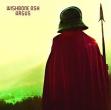
Wishbone Ash were one of the first, and best, exponents of the twin lead guitar attack! Evolving out of a number of mid to late sixties UK bands, namely The Scimitars, Empty Vessels,Tanglewood, King Biscuit and The Sugarband, they were formed by drummer Steve Upton, bassist/vocalist Martin Turner, and guitarists Ted Turner (no relation - he featured on John Lennon's "Imagine" album in 1971) and Andy Powell. They signed to MCA Records and they released their brilliant eponymous album in 1970. Heavily influenced by The Allman Brothers and The Yardbirds, they were also preoccupied with historical themes, complex instrumentals and folk rock, which was very much in evidence on their second album, ''Pilgrimage" in 1972, and on "Argus"(1973), from which the featured track was taken. "Wishbone Ash 4", released in 1974, proved to be Ted Turner's last studio album with the band (he featured on the first "Live Dates" album, released that year). His replacement was Laurie Wisefield from the UK melodic rock band, Home. Wisefield, with his great voice and fluid guitar style, fitted in perfectly with The Ash, and his first studio album with the band, "There's The Rub", in 1974, was well received.
The band continued successfully, becoming tax exiles in the US. They returned to the UK to play at The Reading Rock Festival in 1975. Later albums included "Locked In", "New England", "Front Page News", ''No Smoke Without Fire" and "Just Testing", which proved to be the last album to feature Martin Turner, who left in October 1980. He appeared on "Live Dates 2", which came out in 1979. He pursued a career in record production and formed his own band, The Wolfgang, before rejoining The Ash in 1987. He also released a solo album called "Walking The Reeperbahn" in the mid to late 90's. Turner was replaced by John Wetton, ex-Uriah Heep, who appeared on 1981's "Number The Brave" album. Wetton was in turn replaced by Trevor Bolder, also from Uriah Heep, and, at the this stage, Claire Hammill came in on vocals. One last album, "Twin Barrels Burning'' was released before the band folded for a few years. Bolder returned to Uriah Heep and the band resurfaced in 1985, this time with ex-Trapeze bassist Mervyn "Spam'' Spence, together with Wisefield, Powell and Upton, and they released the very good "Raw To The Bone" album that year. It was around this stage that Ted Turner returned to the fold and the band renewed their relationship with former Police manager Miles Copeland. They released "Nouveau Calls" in 1988, "Here To Hear" in 1990 and "Strange Affair" in 1991. Numerous live and compilation albums were released before yet another Wishbone Ash line-up emerged in 1996. Andy Powell was now the only remaining original member and, together with drummer Mike Sturgis, guitarist/bassist Roger Filgate and vocalist Tony Kishman, and this line-up released the brilliant "Illuminations" that year. (A track from this album was featured on the first Dinosaur Days compilation, released in 1999). Since then, albums such as "Bare Bones"(with drummer Ray Weston, bassist Bob Skeat and guitarist Mark Birch), "Bona Fide"(the same line-up, except with Ben Granfelt on guitar in place of Birch), "Live Dates 3" and "Almighty Blues" have been released, as have a few great dvd's. Wishbone Ash are an important part of the great tradition that is British rock music.
18). Gnidrolog - Reach For Tomorrow
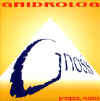
From "Gnosis" in 2000, a come-back album from one of the most interesting (and interestingly named!) bands to emerge from the UK. The band's roots go back to the late 60's when they were formed by identical twin brothers, Colin (vocals, guitars, recorders, tenor sax and harmonica) and Stewart (lead guitar and vocals) Goldring, both of whom, as classically trained child actors, had begun their careers singing in folk clubs at the age of 13. The name Gnidrolog, incidentally, came about as follows: Spell "Goldring" backwards, transpose the D and the R, add an extra O and voila, you have Gnidrolog! Colin also appeared on Yes's "The Yes Album". Joining the brothers were Peter "Mars" Cowling on bass and cello and Nigel Pegrum on drums, flute, oboe and piano. Just by looking at the mix of instruments, you can see that this was a really interesting band with some amazing ideas. They signed to the RCA Record label and released their weirdly named "In Spite Of Harry's Toenail" debut album in 1971. It was one of the most unique and different prog albums to be released at the time and, although it required one or two listens, the album had some incredibly catchy and quirky moments that set this band apart from any other. (If comparisons have to be made, think of Gentle Giant or Van Der Graaf Generator!). The same could be said of the follow-up album, "Lady Lake", which was released in 1972, although "Lady Lake", which featured John Earle on saxes and flute, was slightly better, mainly because of the brilliant "I Could Never Be a Soldier" anti-war track, with its fantastic flute solo. Gnidrolog sadly folded in the early 70's, with Nigel Pegrum going on to join Steeleye Span and The Barron Knights, and Mars Cowling to the Pat Travers Band, although he quit the music industry when he left Travers' band. A mid 70's Dutch band called "Lady Lake" took their name from Gnidrolog's second album.
The brothers revived the band in the late 90's after learning that there was much interest worldwide in the band's music. Recruiting Rick Kemp from Steeleye Span on bass, together with Nessa Glen on keyboards and securing the services of original drummer Nigel Pegrum, the band set about recording what was to become their third studio album. "Gnosis", which means Spiritual Knowledge, although not as "quirky" as either of the two original albums, features some fantastic and diverse styles, with Colin Goldring's vocals as good as they ever were. The featured track, "Reach For Tomorrow" was 'originally written in the 70's as a prayer for peace in the Middle East. It Evokes God's name (Shadai) and Colin sings in the style of the Ashkenazi Cantor to evoke prayers and is dedicated to those who lost their lives in the Warsaw Ghetto Uprising in 1945'. A live album,"Live 1972", of material recorded exclusively in the UK, was released by Audio Archives in 1999. Gnidrolog must have been great to see live on stage!